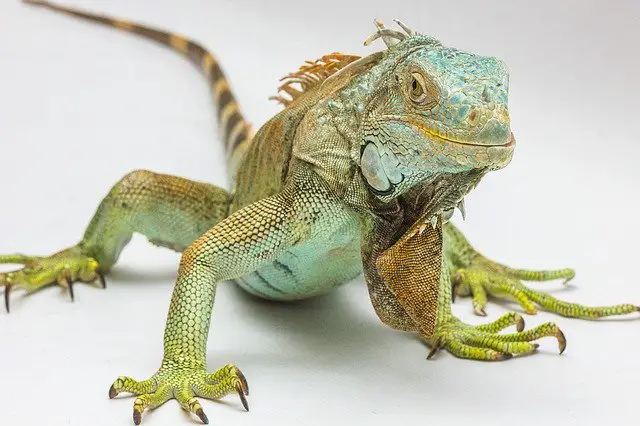Flex Seal is one of those popular, “do it all” adhesives that were created for several applications. Many reptile owners—and aquarists—are probably curious as to whether or not Flex Seal is safe for repairing wood and other materials that are in their enclosures.
Flex Seal is very dangerous to your reptiles if they are exposed to it before it has been given ample time to cure. It can cause a lot of side effects and possibly even death, especially if the level of exposure is extreme.
Flex Seal is often used by people without any real regard for the safety hazard present if the vapors are inhaled. Of course, as far as humans are concerned, this is a rare problem and even smelling the vapor briefly won’t cause a problem.
However, for pets such as reptiles, birds, small dogs, and cats, the vapor from Flex Seal is certainly problematic.
Reptiles Exposed to Flex Seal
There are a number of ways that exposure to the vapor and chemicals from exposure to Flex Seal can harm your reptile.
- Breathing difficulties
- Digestion issues
- Skin reactions
Like people, reptiles breathe with lungs rather than gills, nor do they absorb oxygen through their skin via osmosis. However, they don’t always move oxygen through their lungs in exactly the same way. Regardless, it’s toxic to both their lungs and yours.
If your reptile breathes in the vapors from Flex Seal, a number of respiratory issues will result and none of them are good. Some of the breathing problems that they may experience could be life-threatening and either way, you would need to get them to a vet as soon as possible.
Your reptile can also suffer from digestion issues if they are exposed to Flex Seal that hasn’t been cured. This is especially true if your reptile mistakes the Flex Seal for water and tries to ingest it.
Of all of the exposure issues, this one is the most deadly, and you should keep your reptiles well away when applying and keep them away until the curing process is complete.
A reptile’s skin is every bit as important to them as it is to us. Depending on the reptile, their skin performs several, vital functions. Exposure to Flex Seal could be severely problematic and could make your reptile extremely ill.
How to Use Flex Seal in Your Reptile’s Environment
The most important thing to understand is that Flex Seal takes time to cure. Usually, this can take 24 hours, however, it also depends on how moist or how dry the surrounding environment is when you use it.
Reptiles are just as curious about new things in their environment as any other creature and you want to be sure that the Flex Seal is completely cured before you allow them to exercise that curiosity. Depending on the repair work that you’re doing, there may be a lot of exposed Flex Seal after you’re done.
Flex seal is available in a number of forms such as putty/paste, spray, glue, and liquid. Regardless of which one you decide to use to repair something in your reptile’s enclosure, you need to give it the appropriate amount of time to cure. For the most part, the spray version is used for enclosure repair.
- Remove everything from the enclosure, including your reptile
- Place all of the enclosure materials and reptiles far away from any potential exposure
- Clean the tank out thoroughly since Flex Seal will work better on a clean surface
- Spray between 7” and 10” away from the repair area, ensuring all cracks and crevices are covered
- Allow it to dry for a full, 48-hour period
- Return and spray a second coat
- Wait for another full, 48-hour period
- Wash the enclosure out again, this time with 10:1 water to bleach ratio cleaner
- Go over the repair areas with silicone caulk
- Ensure that it is 100% silicone and you catch every crack along with the enclosure’s corners and edges
- Wait for an additional 48-hours
Sure, it seems like quite a lot, especially the waiting. You’re essentially repairing an enclosure that your reptile won’t be in for the better part of a week, if not the entire seven days. However, you want it done right the first time and the wait is necessary to protect your reptile.
The good news is, once it’s done, it’s done and you won’t have to worry about facilitating any more repairs for a long time.
What is the Best Silicone Sealant and Flex Seal to Use?
When it comes to silicone sealant, the best—and most frequently used in aquariums and reptile enclosures—is the GE SCS1200 Silicone Sealant After it is cured, it is safe for reptiles. It’s also a very effective sealant.
The Flex-Seal Spray variant is the most common type of Flex Seal used in repairing reptile enclosures. It’s very effective and long-lasting. Once the seal is completely cured, it will no longer release the harmful vapors that threaten the health and well-being of your reptiles.
Used together, both Flex Seal and Silicone Sealant are long-lasting measures in terms of repair and sealing work. Especially when you double-coat the Flex Seal prior to applying the silicone.
Final Thoughts
So long as you allow for plenty of cure time after applying Flex Seal, it is definitely safe for your reptile and anything else that goes into your enclosure. Not to mention, Flex Seal is an effective sealant material that will last a long time.




